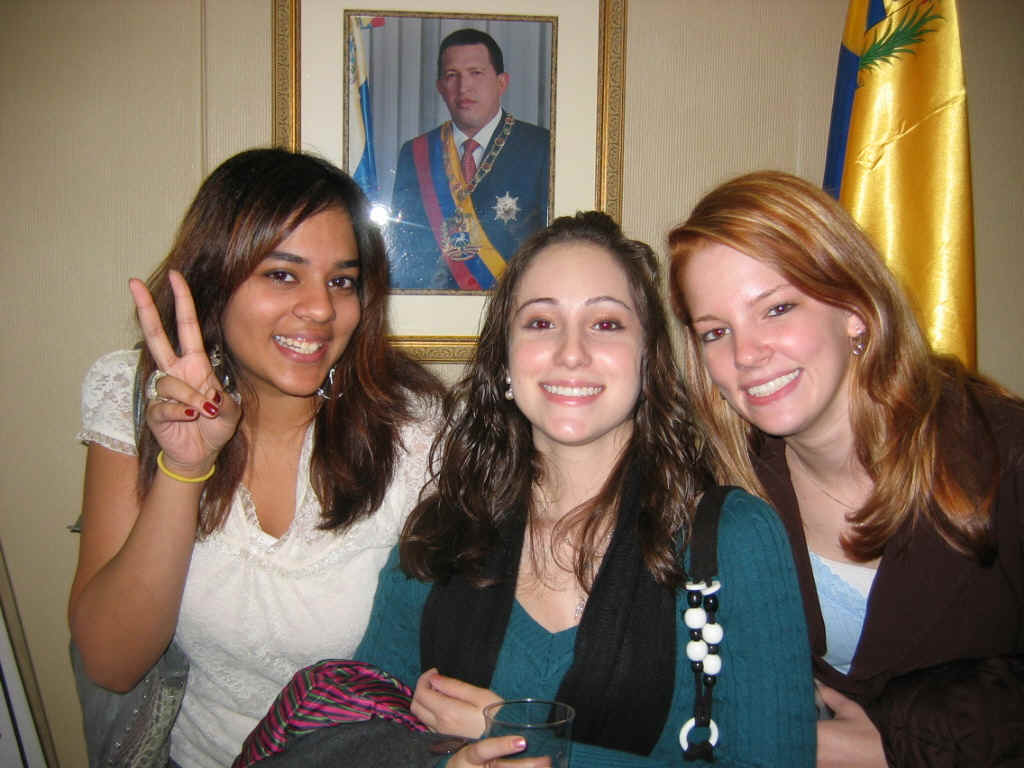
Visiting the Embassy of Venezuela

HHS Political Science students, including Malini, Taylor and Liz, visited the Embassy of the Bolivarian Republic of Venezuela on November 15th, 2006. After viewing a beautiful video on tourism in Venezuela, officials of the embassy participated in a question and answer session with the students.
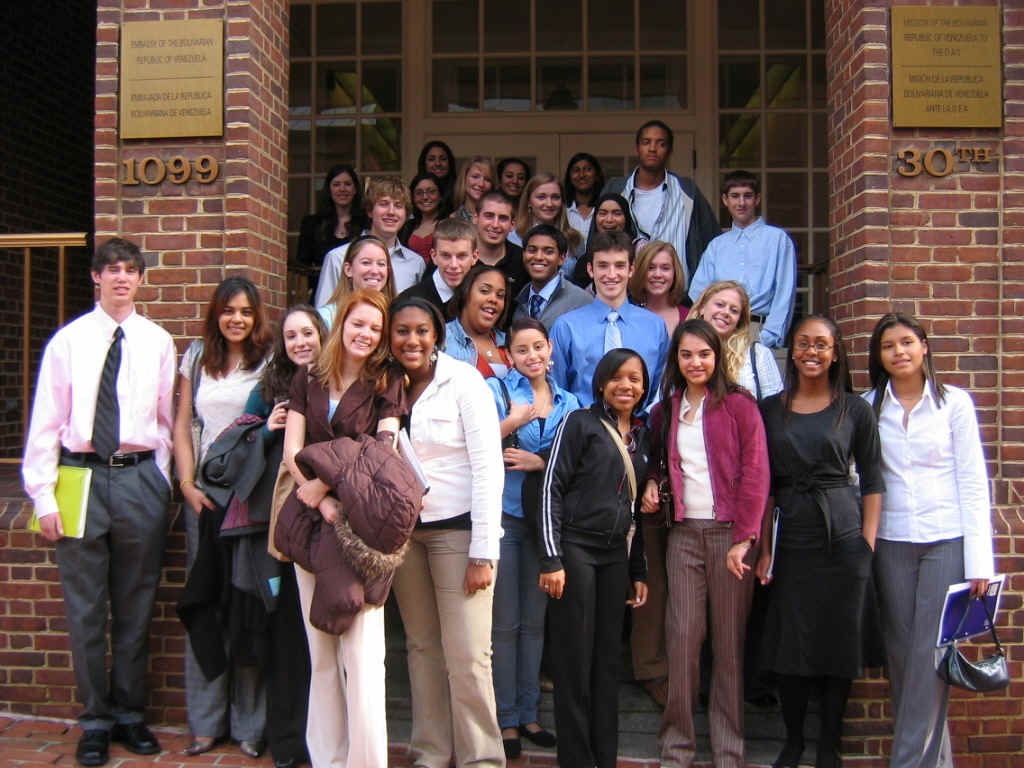
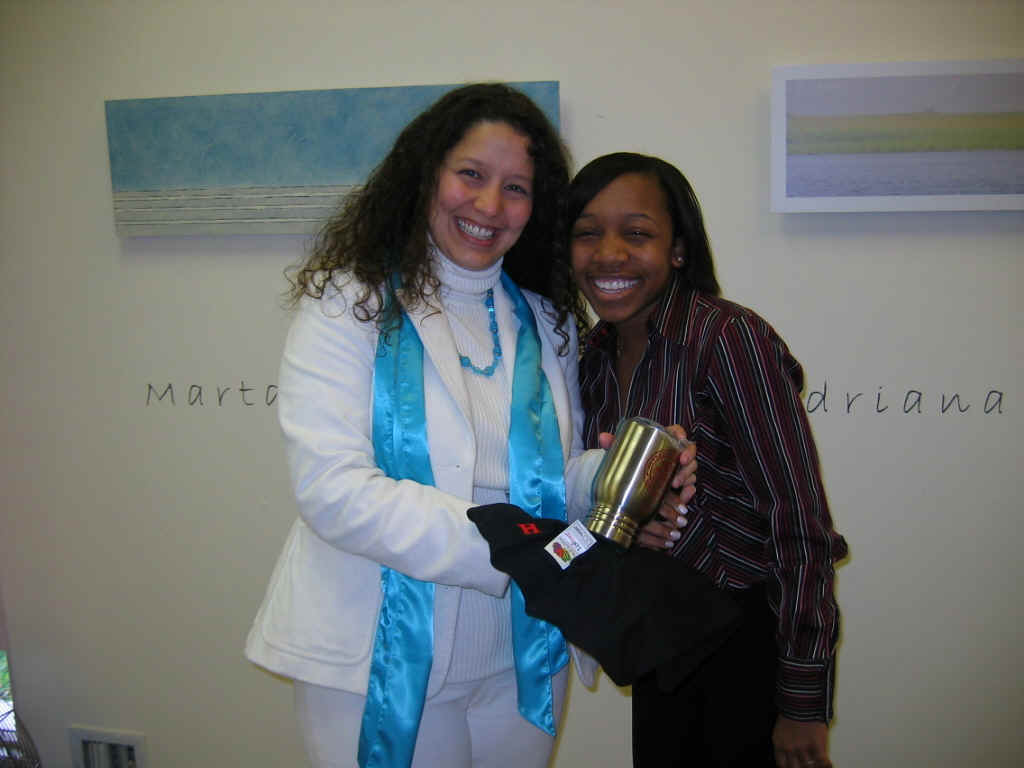
Patricia Abdelnour, Cultural Attaché of the Embassy of Venezuela, accepts tokens of our appreciation for hosting the event from Jazman.
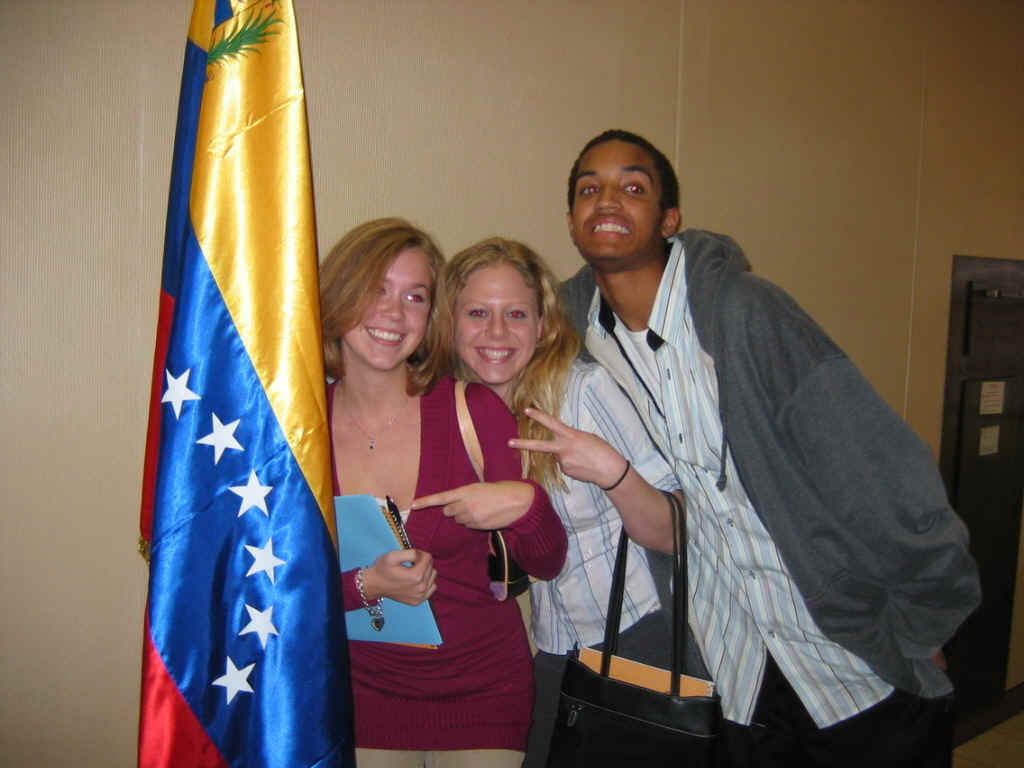
Caitlin, Nichole and Chris
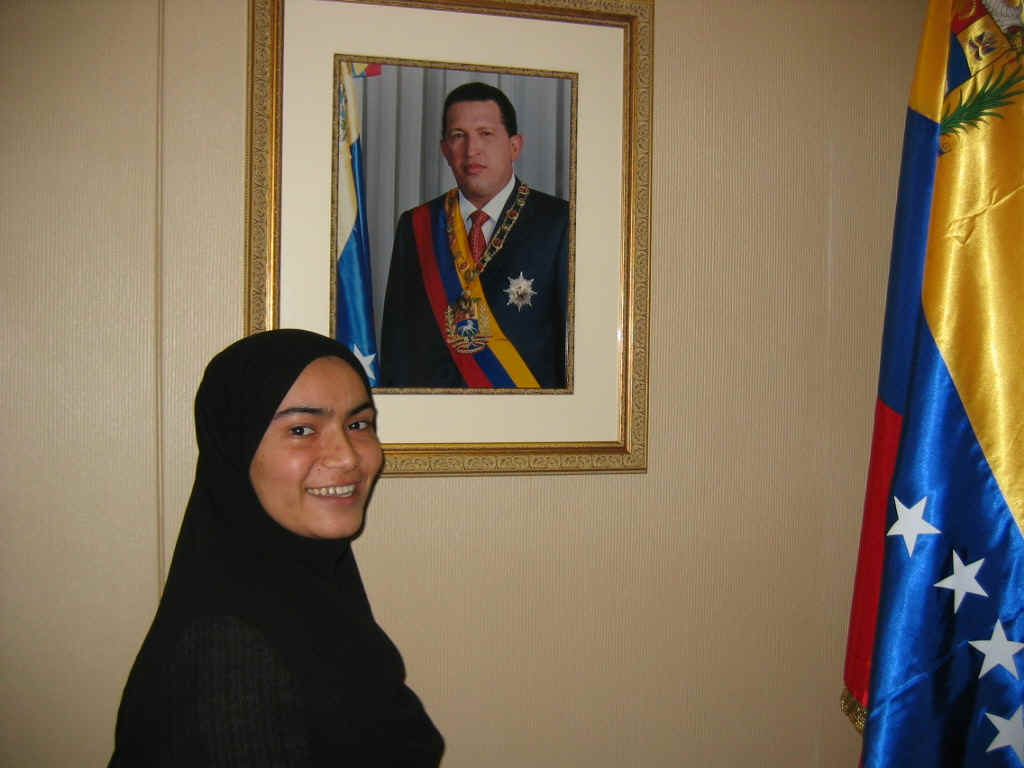
Mehwish
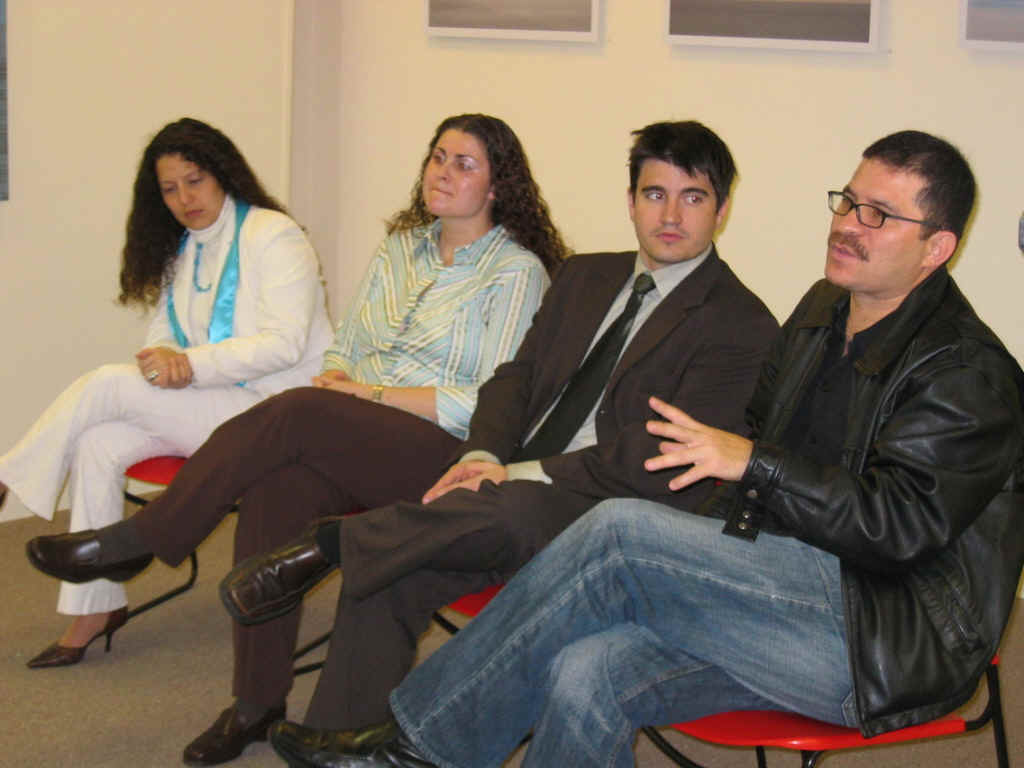
Cultural Attaché Patricia Abdelnour, Olivia Goumbri from the Venezuelan Information Office, Energy Attaché Asier Achutegui and also from the Venezuelan Information Office Ricardo Moreno
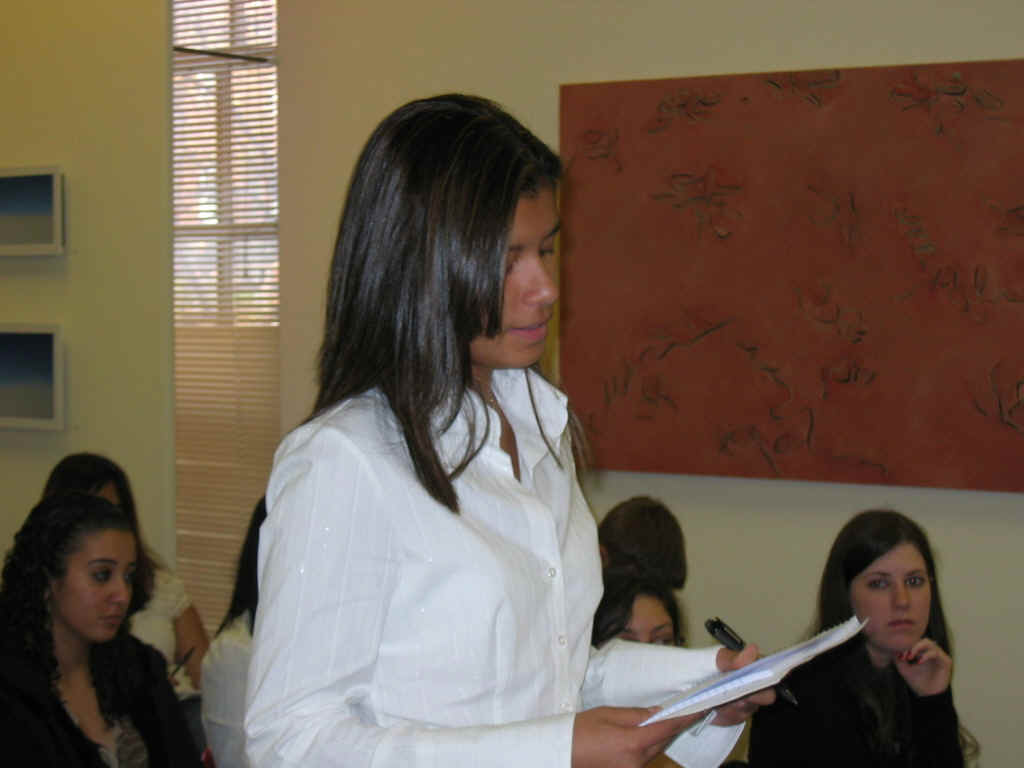
Katherine (in Spanish)- As someone that will be interning at the Embassy of Peru next semester, should I be concerned that President Chavez promised to "cut ties with Peru if Alan Garcia won the election" which he did win? Isn't President Chavez doing what he accuses President Bush of doing, that is, interfering in the affairs of other nations? ANSWER- President Chavez believes in true democracy and he did not see that happening in Peru. He was concerned about fraud and the U.S. using dirty politics to help Alan Garcia.
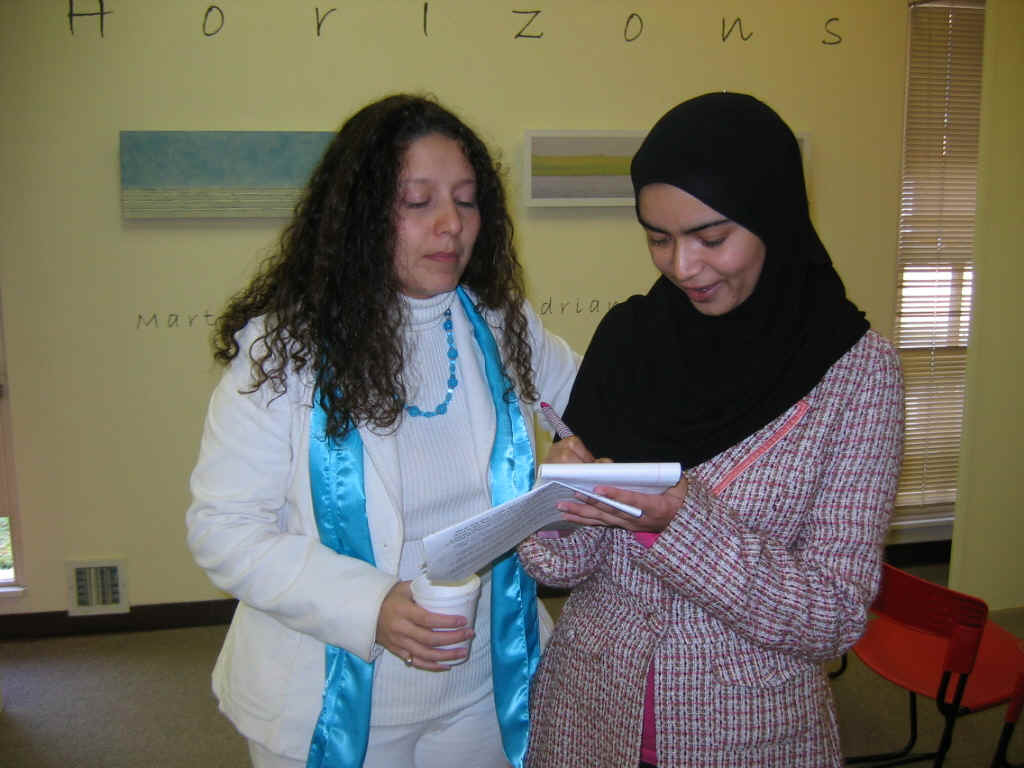
Mehwish- The best friends of the U.S. are probably England, Israel, South Korea and Australia. Other than Cuba, who are the best friends of Venezuela? ANSWER- In addition to Cuba, our best friends are Bolivia, other nations in the Caribbean and members of the Arab League.
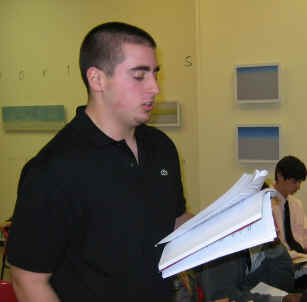
Mike- How do President Chavez's chances of reelection look next month and if he loses, will you hold the U.S. partially responsible because of the U.S. funding opposition groups, detailed in an August 30th, 2006 The Guardian article? ANSWER- We think President Chavez will win easily. In the 4 most recent polls Chavez is up by 18%.
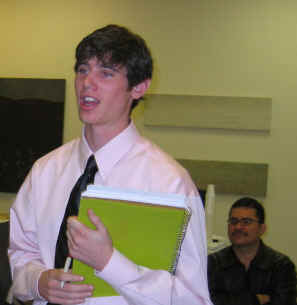
Evan- What is your opinion of Manuel Rosales, President Chavez's opponent in next month's election? ANSWER- Chavez is a better candidate because he has better social programs. The ideas that Rosales has are just a political ploy to help him get elected. He has a bad record as a governor of one of our states. His state was always known for corruption.
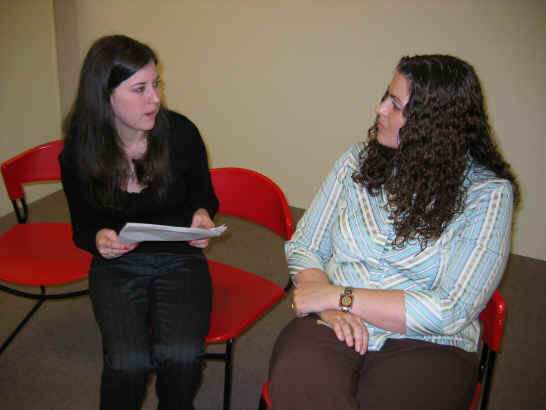
Brooke- American singer Harry Belafonte stood next to President Chavez in Venezuela and called President Bush "the greatest terrorist in the world." As someone that currently lives and works in the U.S., what are your thoughts on that statement? ANSWER- George W. Bush has a strong desire to control other countries. Because Belafonte is black he has dealt with a lot of racism and there is a lot of violence over this issue. Bush forces and initiates violence, so essentially Belafonte has a right to say what he did.
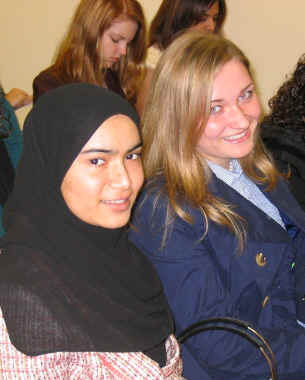
Ilina- Last February the U.S. and Venezuela expelled diplomats from each other's embassies. As someone that works in this embassy, what did you think when that happened? ANSWER- I know that an embassy attaché was caught emailing a Navy officer who opposed President Chavez. Other than that I'm not too familiar with the case.
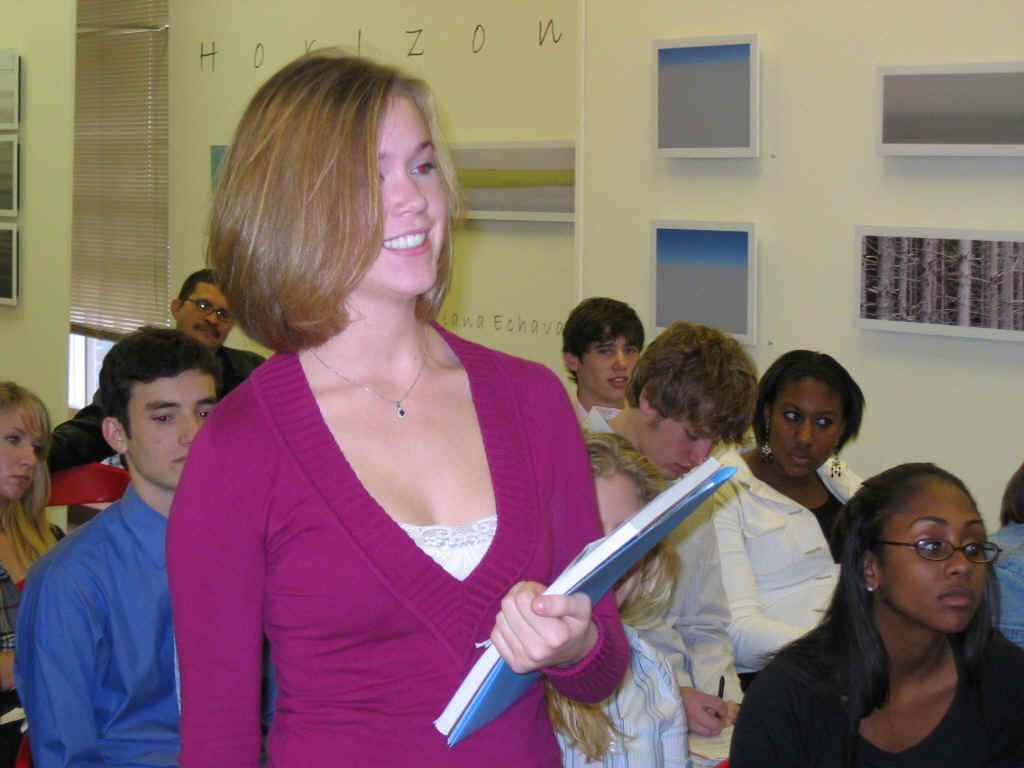
Caitlin- In an April, 2006 National Geographic article, it mentioned how the government of Venezuela would take over portions of large ranches if the owner could not provide deeds to the land back to 1821 even though the deeds did not exist back then. Is the National Geographic story true? ANSWER- There are a few people in Venezuela that own huge areas of land that they are not using. Venezuela has a lot of oil but we need more than that to provide economic stability for our people. We have to develop the agriculture potential of our nation. If the owners of the land are not going to use it, we will pay them for a portion of the land they are not using. This is like the "Eminent Domain" in your nation.
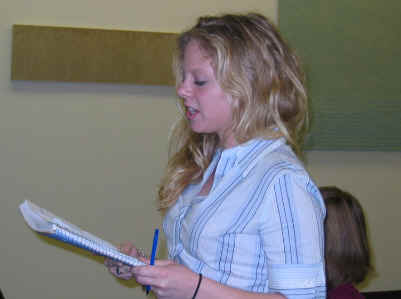
Nichole- Do you think President Chavez's speech to the U.N. where he called President Bush "the Devil" was counter-productive considering Venezuela did not get a seat on the U.N. Security Council? ANSWER- The U.S. made sure that Venezuela would not get on the Security Council by putting pressure on other countries. But you noticed that many of the nations cheered when President Chavez said that. President Chavez says things other people are thinking but don't want to say.
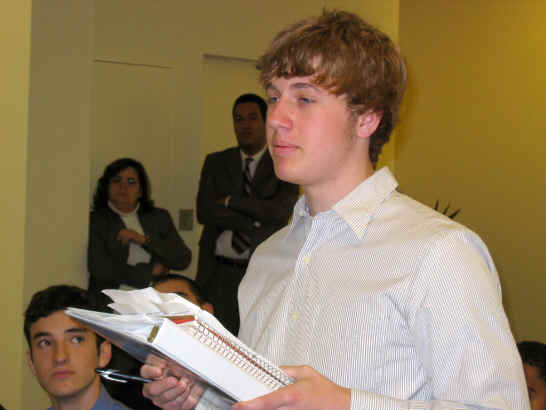
Collin- When President Chavez was in Syria last summer, he said "This age will witness the end of American imperialism." In what ways do you think the U.S. is an imperialistic country? ANSWER- Well when you look at the interference the U.S. has done to Venezuela, including stopping us from getting a seat on the U.N. Security Council and their role in the coup attempt against Chavez, those are two examples. Not to mention what is taking place in Iraq. The U.S. is doing many other things that are not reported in the American media.
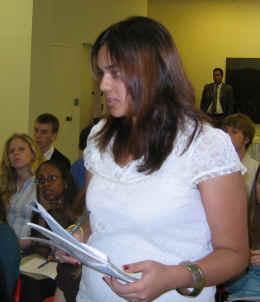
Malini- I want you to know that I am one American that appreciates the help you offered after Hurricane Katrina and your government providing low-cost heating oil and gasoline to the poor people in the northern parts of our country. Have you been pleased by how this program has worked and do you plan on doing that this winter? ANSWER- You're very welcome. Yes, today was the first delivery of heating oil from Venezuela. We are expanding the program from 8 to 16 states, including helping Native-American tribes in Alaska.
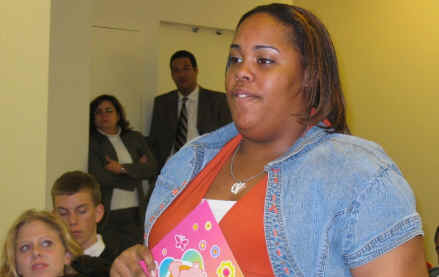
Jasmin- When President Chavez went to China last summer he referred to what Israel was doing in Lebanon as "genocide." Do you really think that is a fair assessment of what took place there? ANSWER- If some people are killing others I think that is genocide. Imagine if people in the U.S. kidnapped a few Mexicans and then Mexico bombed Washington, D.C., destroying buildings and killing thousands of people. Would that be fair?
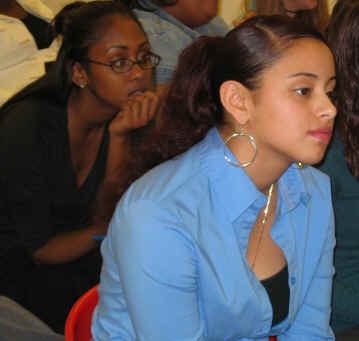
Beatriz (in Spanish)- According to the CIA Fact Book, there is drug-related violence on your border with Colombia. How is your relationship with Colombia and would your government order troops into Colombia to stop this violence? ANSWER- Venezuela does try to do something about this violence but when we try to get helicopters and weapons for the border, the U.S. accuses of starting an arms race in South America. We have American made aircraft and weapons but now your country will not sell us spare parts. So when we go elsewhere to buy these, the U.S. accuses us promoting instability.
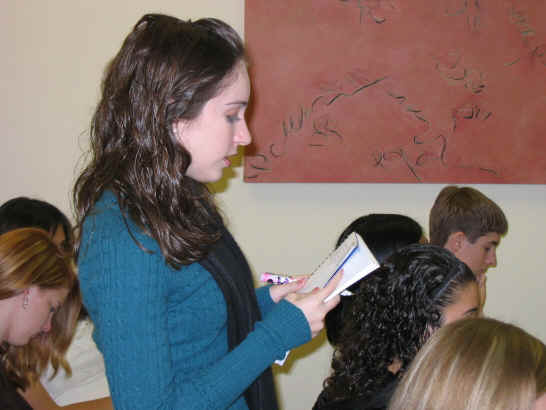
Taylor- What do President Chavez's rhetorical techniques such as calling President Bush a "drunk" a "donkey" and "the Devil" hope to accomplish politically? ANSWER- President Bush has called leaders the same types of things, President Chavez was trying to talk in Bush's own language. Chavez was angered by the arrogance of Bush's U.N. speech. Bush was acting like he owned the whole world.
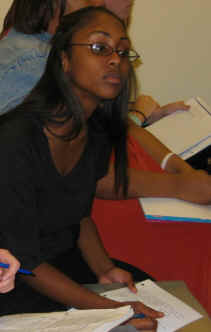
Khadijah
A Lunch of Traditional Venezuelan Foods was Greatly Appreciated!
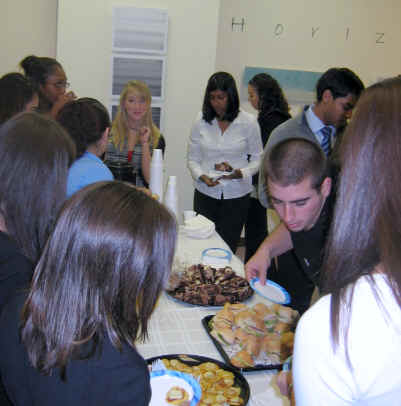
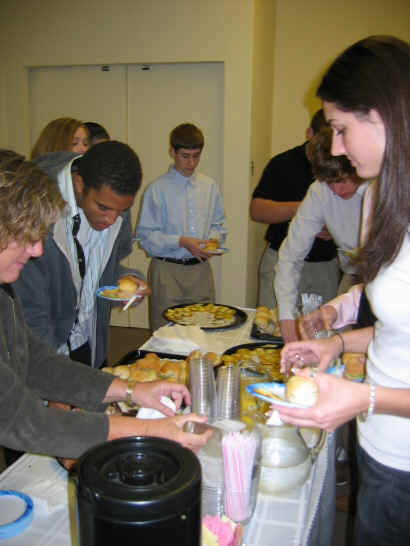
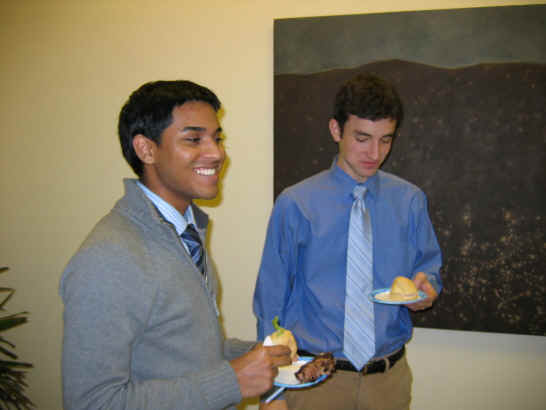
Naqib and Matt
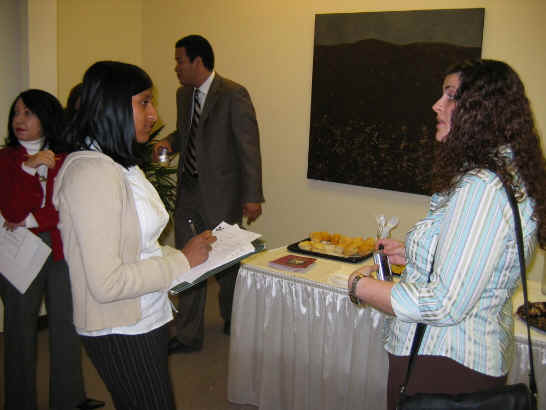
Tonny- How much oil does Venezuela have? Will you be able to depend on oil revenues for the foreseeable future? ANSWER- Well we don't want to have to depend solely on oil. That is why we are trying to diversifying our economy. We want to get revenue from different exports and we want to become a more agricultural nation.
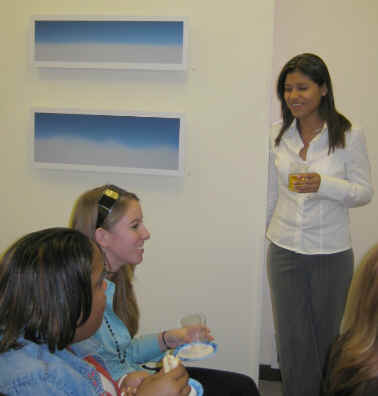
Julie- In a May, 2006 Reuters article, it stated that gasoline is 12 cents a gallon in Venezuela. Is there any way President Chavez could get CITGO gas stations in this country to sell their gas that cheap? :-) ANSWER- Well the oil in Venezuela belongs to the people of Venezuela, so the people shouldn't have to pay much for it.
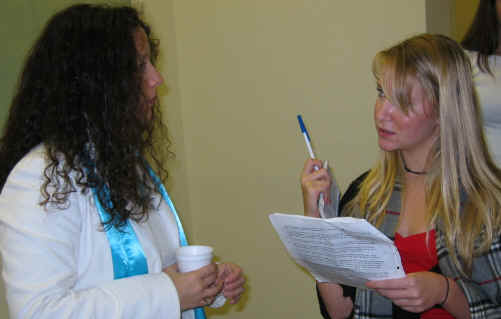
Danielle- In a September, 2005 interview with ABC News, President Chavez stated the only nation Venezuela does not have good relations with is the U.S. How are your relations with friends of the U.S. like England and Israel? ANSWER- The mayor of London has a very good relationship with President Chavez, even though we are not on the best of terms with the country as a whole. We do not have a good relationship with Israel because of their attack on Lebanon.
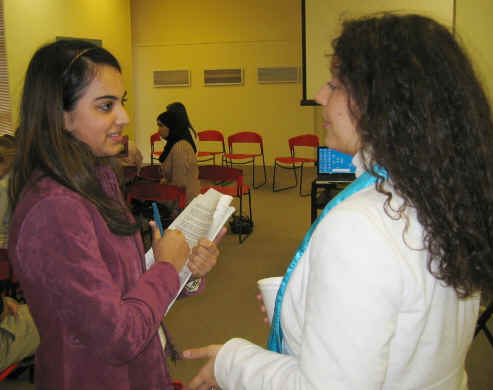
Sabrina- Do you think President Chavez wants to make Venezuela into a world power that could rival the U.S. or China? ANSWER- No, not at all. We just want to be left alone. President Chavez's decisions should be respected and are only a matter to the Venezuelan people.
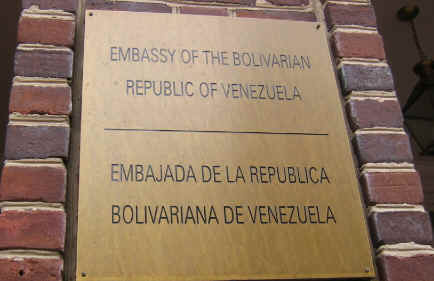
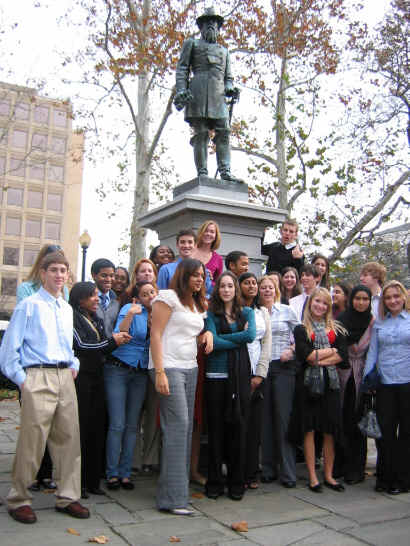
Well we thought we were going to the statue of Simon Bolivar for a photo-op but I wrote down the wrong address. So here we are standing in front of some guy named Rawlins. Extra Credit for the first student to tell me who this guy was!